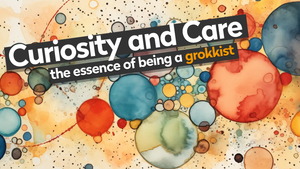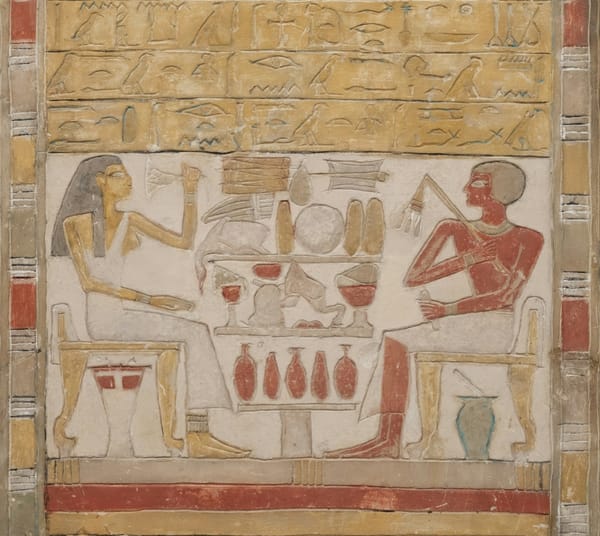I first came across Sylvia Engdahl’s “This Star Shall Abide” when I was at university. It is a science fiction novel about a teenager who starts questioning the structures of the world where he lives.
In that world, villagers are not allowed access to the machines used in agriculture. Instead, a caste of ‘technicians’ look after the machines, while their society is presided over by a shadowy, if revered, group of ‘Scholars’. Eventually, the rebellious hero is goaded into saying things in public which mark him out as a heretic. After a trial he ends up in the gated city being interrogated by the Scholars.
I won’t spoiler the book, but its central themes seemed to me to be about power, and who is entitled (or indeed fit) to have it. And reading this while I was also studying Ancient History meant I recognised that some of the ideas came directly from Plato, who asked the same sort of questions almost 2400 years ago.
Plato was interested in how one should govern a Greek city state. There were various approaches on offer, and three of them had been experienced quite recently in his home city of Athens: tyranny, oligarchy and democracy.
Perhaps surprisingly, for someone living in the prototypical Athenian democracy, Plato believed that the ideal form of rule was not democracy, but rather a form of aristocracy, run by philosopher guardians. These guardians lived entirely communally, owned nothing and devoted themselves to virtue and ruling for the common good.
Nevertheless, Plato knew that this was a difficult ideal to maintain and would likely degrade over time, and parts of the process of decline that he describes sound remarkably contemporary.
Plato called the first stage of deterioration ‘timocracy.’ Here, rulers still focus on the common good but become anti-intellectual and display an excess of competitiveness and ambition. This type of ruler, Plato argues, would not be able to resist the urge to privatise property and own it themselves.
Then, once people learned to value property, the wealthy would come to see themselves as the natural rulers. Hence, in the next stage of decline, oligarchy would blossom. Oligarchs despise the poor and therefore limit power to those with sufficient property.
Oligarchs despise the poor and therefore limit power to those with sufficient property.
But oligarchy divides the people. The dispossessed chafe for freedom, and therefore, once the inevitable democratic revolution occurs, democrats emphasise equality, free speech and pluralism.
Within a democracy, though, the interests of the ambitious, the wealthy and the average people inevitably diverge. And the people, fearing the other two groups, become prey to an individual who at first purports to speak for them.
Once in power, however, this tyrant disposes of all opposition, manufactures an attempted assassination to justify increased armed protection, and then creates enemies of other countries so that a state of constant warfare ensures a perceived need for the tyrant’s protection.
Sound familiar? It may be that we should all now be studying the characteristics of tyranny, but I want instead to focus on the mechanism by which Plato thinks that tyrants arise: the way that the wealthy and ambitious come to be at odds with ordinary people.
We hear a lot about oligarchy currently.
We see people with what may seem an obscene amount of money having what may seem an obscene amount of political influence. However, if you believe, as many do, that material wealth is a natural outcome of virtue (i.e. hard work and diligence) rather than of luck, then it is also easy for such wealthy people to believe that they are, indeed, those best fitted to govern.
Nevertheless, while both Plato and, later, Marx defined wealth (or capital) in economic terms, that is not the only way we can be wealthy. We can, for example, see fame or celebrity as a form of currency. That is why you see actors, musicians and influencers all expecting to be able to affect politics in one way or another on the back of a wealth of both talent and ambition.
But there is another form of wealth which is more subtle, yet perhaps stronger. It’s what Pierre Bourdieu labelled ‘cultural capital’ – the intangible wealth that bestows cultural advantages on those that have it.
Those advantages may involve understanding the system, knowing the things that mark you out as being cultured (like going to the ballet) or understanding the ‘appropriate’ behaviour in different situations. And a large portion of cultural capital is conferred through education.
Higher education, particularly, has long been seen as the stepping stone to more prestigious jobs, and to the middle and upper-middle classes. Once you have cultural capital, you know how to help your children acquire their own more effectively. And gradually you create a class of people who are culturally wealthy.
For those of us who have studied diligently and worked hard to acquire our education, it is easy to imagine that we are akin to Plato’s virtuous and benevolent philosophers, acting for the common good. But are we really working for the common good or just advancing the interests of other people with cultural capital?
Worryingly, quite a few of us appear to look down on or patronise those less educated than us – akin to the way Plato’s oligarchs despised the poor. We may be oblivious oligarchs, but to those lacking our cultural capital, the educationally privileged seem like part of an oligarchic regime, just as much as the materially wealthy do.
Worryingly, quite a few of us appear to look down on or patronise those less educated than us – akin to the way Plato’s oligarchs despised the poor.
Of course, the materially wealthy are also adroit enough to sidestep any democratic backlash. In any case, ordinary people like the idea of economic wealth, and hope to achieve it for themselves one day. That is why the super-rich tend to get a free pass.
But if you are wondering why public servants, universities, cultural institutions and the media are being particularly vilified of late, it is because, in the minds of the culturally impoverished, these groups represent the oligarchs they most want to see taken down a notch or two. The average citizen, it seems, has lost faith in the educated oligarchy to have their best interests at heart.
I suspect the reason this issue has appeared now is because, after half a century of widespread tertiary education, what seems natural and self-evident to the educated middle classes has diverged significantly from what seems like common sense to the average citizen.
And, though the educated are a minority, over the last decades they have increasingly tried to impose their self-evident agendas without even bothering to explain them.
People who queried them have been treated as fools or even cancelled. Reforms that, to take the whole population with them, needed to be implemented gradually over decades were instead enacted in months, because the educated had become impatient for progress. Waiting for the populace to catch up was increasingly something they were unwilling to do.
Pronouns may, for the recalcitrant average citizen, have become symbolic of this process, but it is a much broader phenomenon.
Consequently, it is rather urgent for those of us who are part of that educated elite to take a deep breath and try to understand how we appear to others because, whether we like it or not, the American people just tried to vote out a form of oligarchy. Ours.
They may, if Plato is to be believed, have ushered in tyranny, but that is not what was intended. They just wanted their concerns to be listened to and believed that they had finally found someone who did just that.
I really hope that it is not too late to heal the rift between the educated and the average citizen, because, frankly, the future of western democracy hinges on it. These two groups need to be allies against the vested economic interests that harbour the true oligarchs.
These two groups need to be allies against the vested economic interests that harbour the true oligarchs.
But the process of reconciliation entails our educated, oblivious oligarchy accepting its own culpability for the chasm that has opened up and finally paying proper attention to what the average citizen thinks – and why. Only then can we have a proper conversation and find ways to heal.
And it has to be this way round, because you cannot expect people without an academic background to immediately accept positions that, in academia, have been arrived at through decades of debate.
Changing your mind is not something that ever comes easily. Sadly, recognising one’s own culpability (or at least the culpability of the group one identifies with) is just as hard. It is much simpler to double down on current approaches and continue shooting messengers and the opposition alike.
Nevertheless, if we choose to remain blind to our own failings and, instead, keep on blaming average citizens for our current situation, then the tyrants and economic oligarchs are going to have their way with the world unopposed. At least if you believe that Plato knew a thing or two, and I rather think he did.

Each vignette invites readers to embrace the beauty of unfinished thinking and the art of holding life’s ongoing questions.











Member discussion